Homeless people from Moncton find fresh start, addiction recovery at rural farm
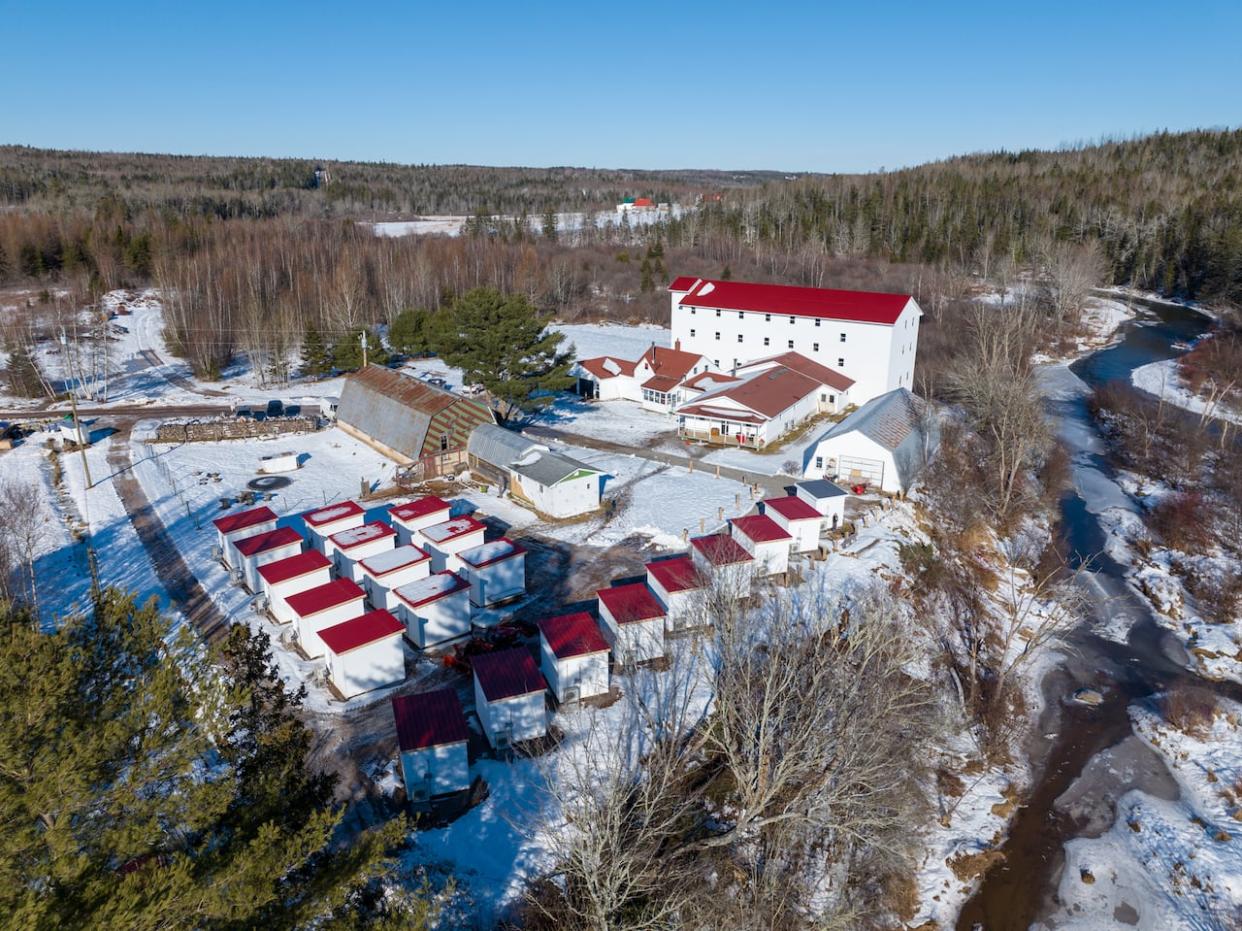
Sitting by the warmth of a wood stove, Shawn Robicheau is quietly working away at a mosaic-style art piece. In vivid purple and green, he's creating a welcome mat that says "home."
For the first time in years, Robicheau has a modest home to call his own. He's one of the first people to move into a cluster of 21 tiny houses on a sprawling rural farm in Little River, about 37 kilometres southwest of Moncton.
"You have your own place. It feels better than being cold and not knowing if you're going to die or not," he said. "It's a peaceful place. There's no arguments. There's no, 'Are we going to eat today?'"
The Humanity Project, a Moncton non-profit that serves meals to people in need, has been working for several years to turn the 187-acre farm into a "therapeutic community," with a focus on people who are not being served by existing shelters and services in the city.
WATCH | See the tiny homes set up for homeless people in recovery:
The tiny homes, the first phase of the project, were built in the fall after the project received a $310,000 grant from the City of Moncton. The province has also committed up to $1.2 million to fund services at the farm.
The tiny house units are 8 x 8 feet in size and similar to a small private bedroom. They each have a bed, storage space, mini fridge, a small table and heating and air conditioning. Communal bathrooms are located in the main farmhouse, where residents also eat their meals.
The farm is open to men and women.
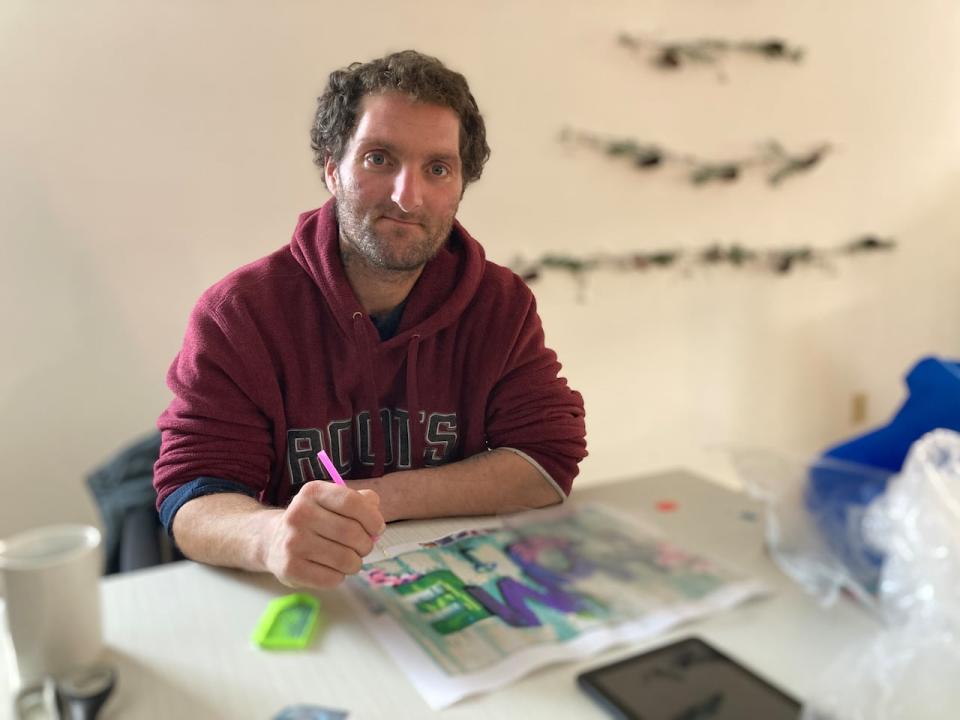
Shawn Robichaud, one of the first people living at the farm, works on an art piece in the main farmhouse. (Alexandre Silberman/CBC)
As of Thursday, a dozen people had moved off the streets of Moncton and onto the farm.
Charlie Burrell, the founder of the Humanity Project, said he expects the remaining homes to be filled within the next few weeks, with a long waiting list until more housing can be built.
"In 10 years of doing this, I don't think my heart has been so happy or so full as it is right now, seeing the difference in people," he said.
'I'm ready to start my recovery'
Robicheau, 40, came to the farm in December after living on the streets of Moncton for the past five years, sleeping mostly outside on cardboard and blankets. He's struggled with addiction and said his motivation to stay sober is to be reunited with his two children.
"I had frostbite on my hands and on my body," he said. "I don't have to worry about that here."
The farm will only take people who want to recover and they cannot be using substances when they arrive.
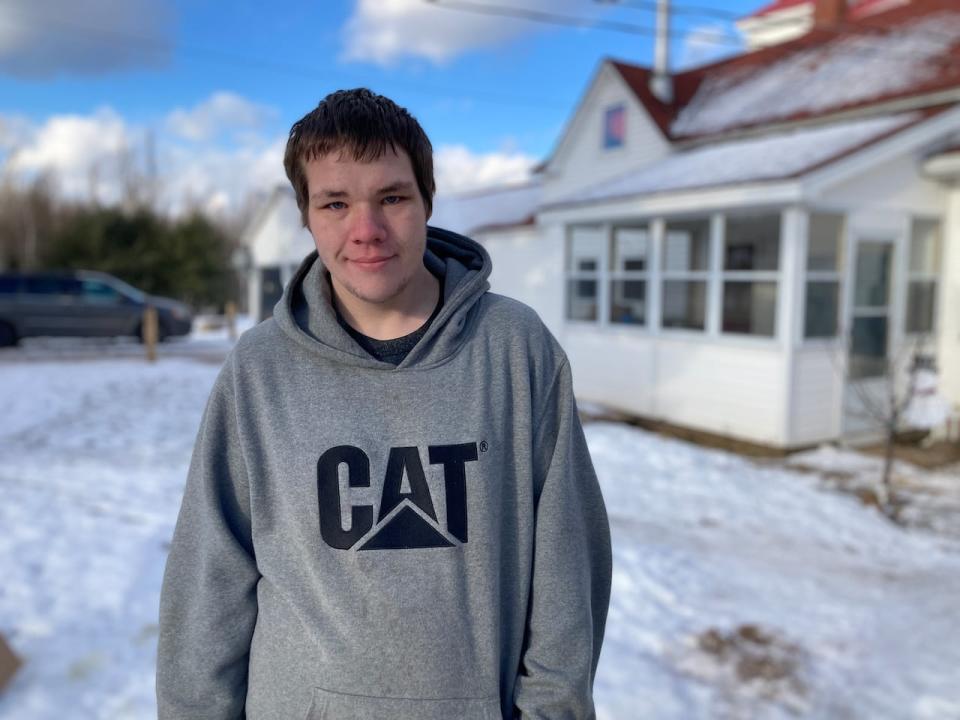
Cole Fullerton came to the farm after living on the streets of Moncton for about five years. (Alexandre Silberman/CBC)
The Humanity Project is helping to find people spots at Moncton's detox centre and arrange any necessary medical appointments, before driving them out to the farm. It's an individualized process for each person, depending on their situation.
Cole Fullerton, 21, has been at the farm for about a month. He's been living on the streets for about five years and said he became addicted to meth before starting to use fentanyl.
"I overdosed once and I went to Charlie, " Fullerton said. "And he said 'I'm going to get you to detox.' He took me to detox and I went straight here. He saved me.
"I'm ready to start my recovery, so it's perfect out here. It's a calm environment, good people."
Many in need, limited spots
Burrell and his staff are working to pick people for spots at the farm based on a variety of factors, including the severity of their addiction, how long they've been on the waiting list, and whether they're sleeping outside and banned from shelters.
"For us, it's who is most at risk of dying," Burrell said. "That's who we need to take first, because it's freezing outside right now."
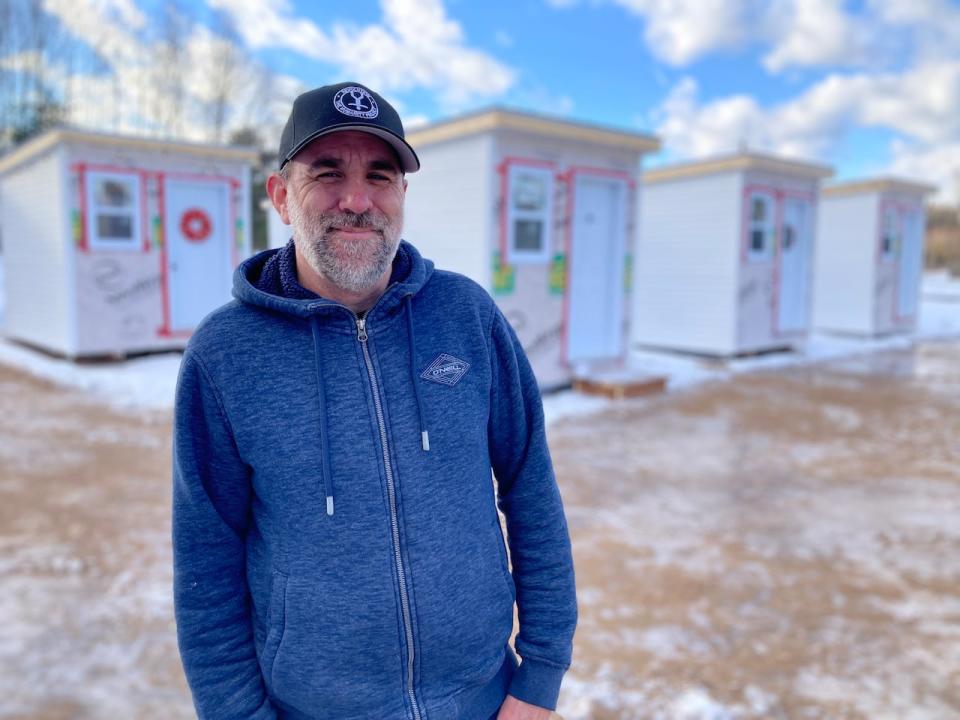
Charlie Burrell, founder and president of the Humanity Project, said he expects the 21 tiny homes to be full within the next few weeks. (Alexandre Silberman/CBC)
He said that last week a Moncton homeless man, who was well-known to residents and staff, died on the streets.
"They were all pretty affected by it, pretty badly," Burrell said. "It's people that they know and they love and they care about, and to know that they're still out there is a little bothersome."
Inside the large farmhouse is a communal space with a living room area, a kitchen and spaces to offer classes and programs. There are also plans to convert part of the upper floors into apartments, as part of phase two, for transitional housing.
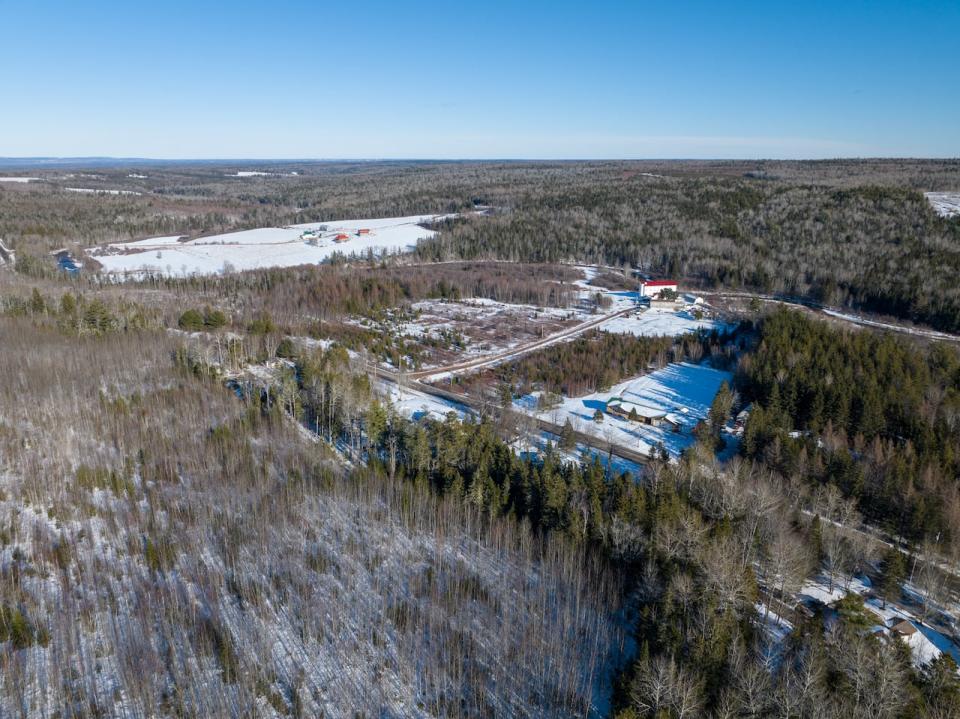
The vision for the sprawling property is to eventually build independent-living homes as transitional housing. (Alexandre Silberman/CBC)
Eventually, Burrell hopes to build fully independent homes on a different section of the property, with a kitchen, living room and bathroom. The goal is to help ease the transition back to housing in the city.
"We have to start somewhere," he said. "There's too many people out there that need help."


